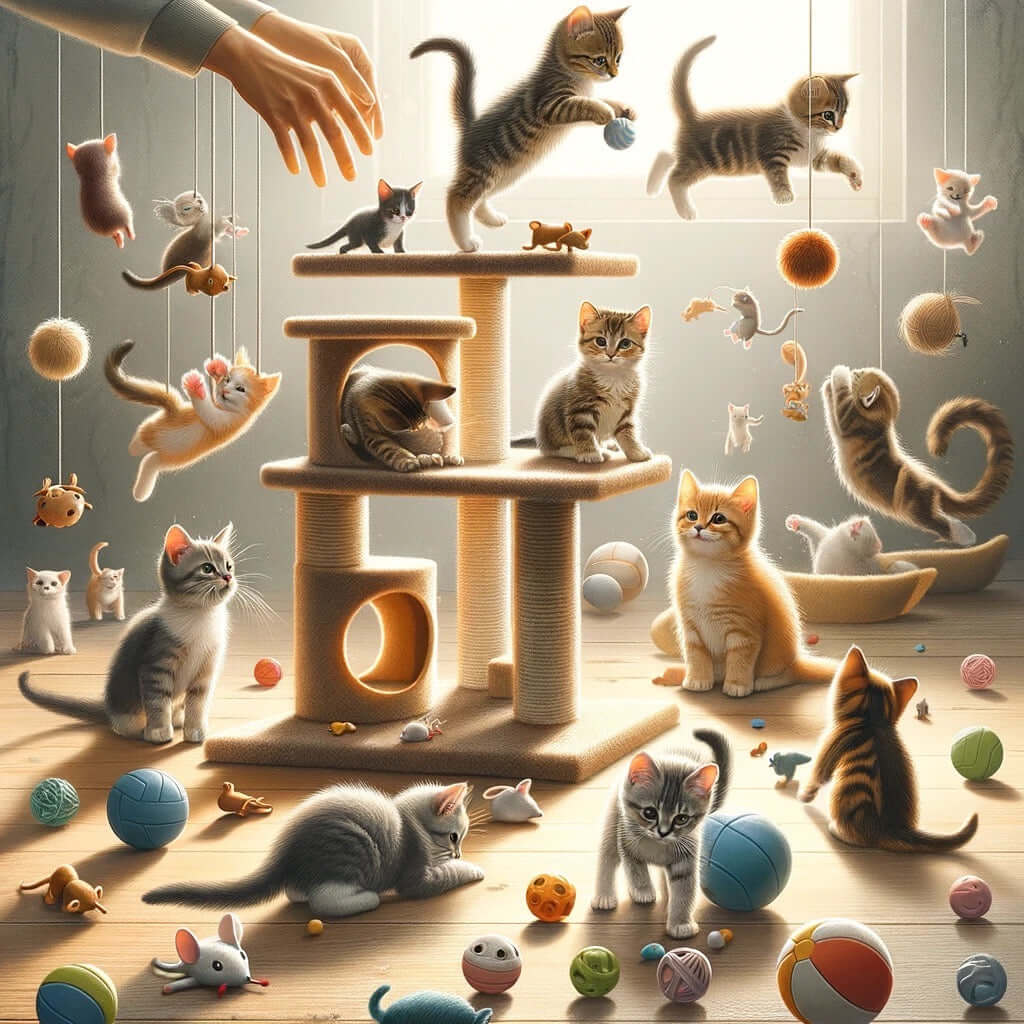Play is a crucial part of kitten development, providing much more than just entertainment. It plays an essential role in their physical, cognitive and social development. Through play, kittens learn essential survival skills, such as hunting, but also the rules of socialization and interaction with their siblings, humans, and other animals.
Physical development
Play encourages physical activity, contributing to kittens' muscle development, coordination and flexibility. It also helps prevent obesity.
Cognitive development
Games that stimulate kittens' minds, such as those that involve solving problems to obtain treats, promote cognitive development and keep a kitten's mind active and engaged.
Socialisation
Playing with other kittens, animals or humans helps develop important social skills. This includes learning boundaries, such as how far to bite or scratch during play, and how to communicate effectively.
Game strategies:
- Use toys that imitate the prey, such as stuffed mice or feather dusters, to encourage hunting behaviors.
- Introduce interactive games to strengthen the bond between kitten and human.
- Provide play opportunities with other kittens or cats, under supervision, to improve social skills.
Play should not only be encouraged during early childhood; it must remain a regular activity throughout a cat's life to maintain its overall health and well-being.
Sources :
- Bradshaw, J., Ellis, S. (2016). The Behaviour of the Domestic Cat. CABI.



Compartir:
Internal and external parasites in cats: prevention and treatment
Understanding Territoriality in Cats